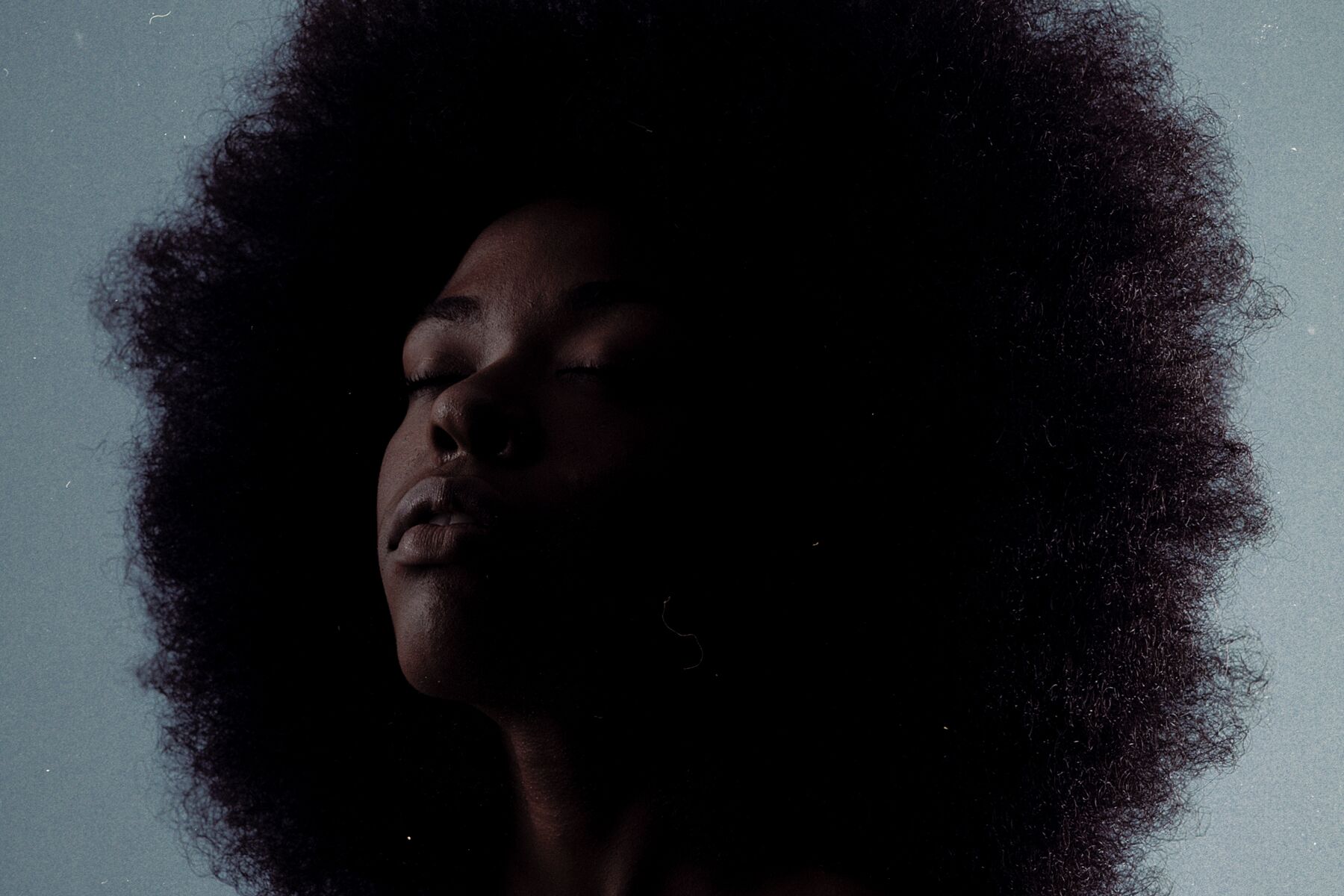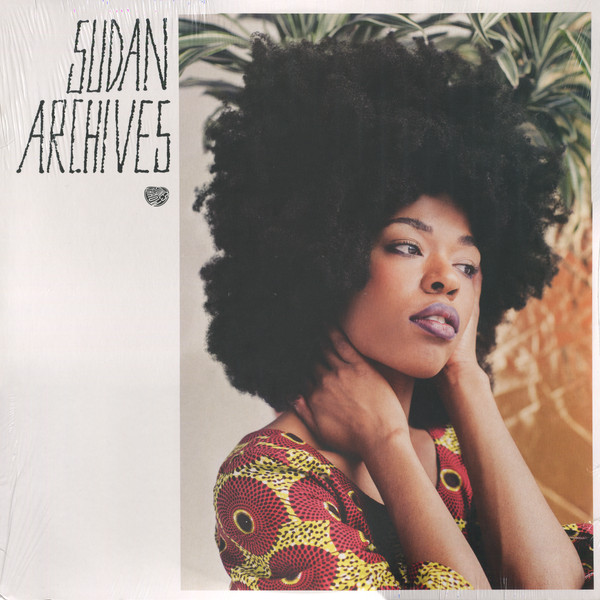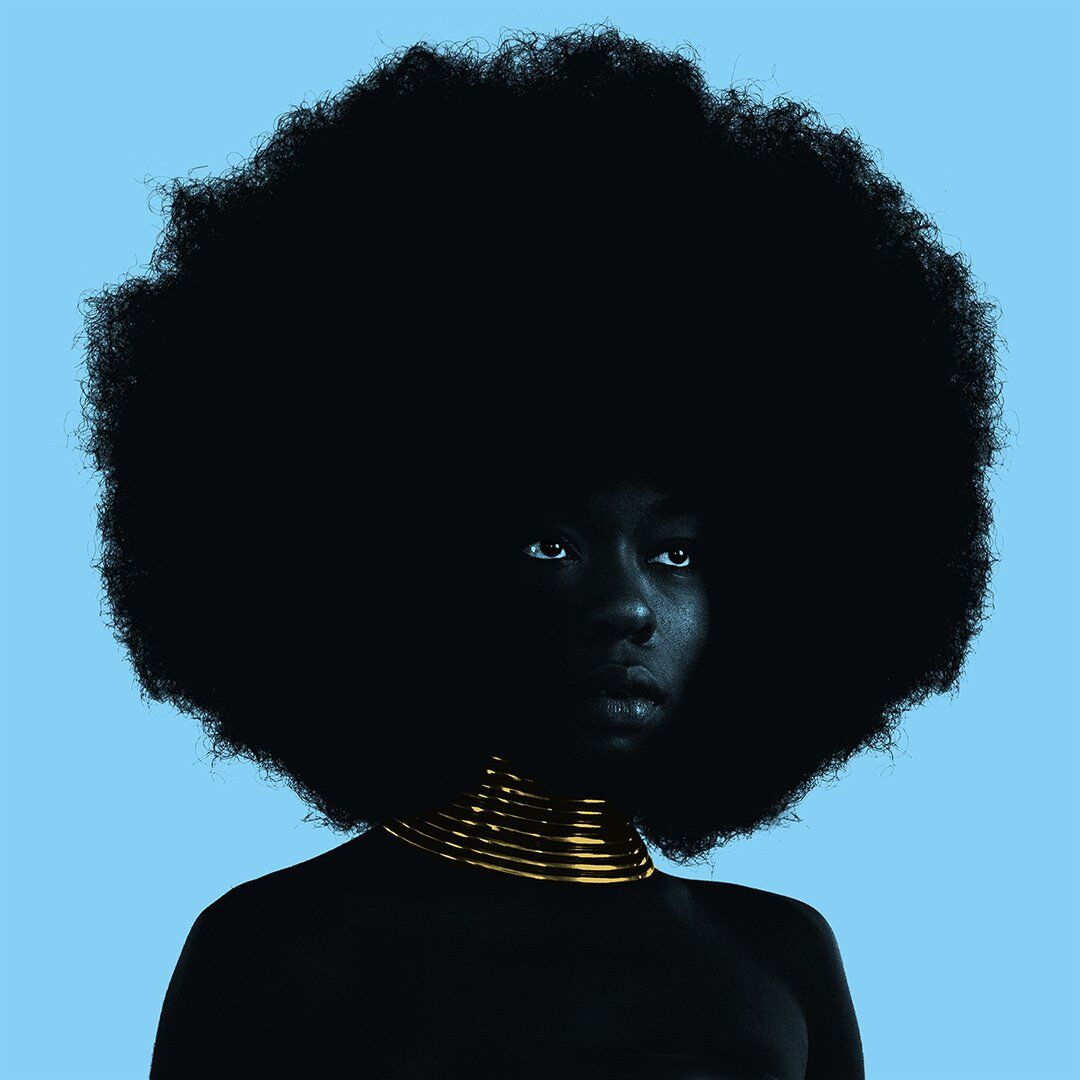When Brittney Parks first started experimenting with playing her violin over self-created loops, she was just carving out and killing some time between two jobs. She'd create a beat on her Boss RC-300 Loop Station, use an SM57 to record her violin runs, and then upload the jams to SoundCloud. "I wasn't taking myself too seriously," she says.
At the time, she was making music as Sudan Moon, but she started going by the Sudan Archives moniker after moving to LA. A chat with Stones Throw Records A&R rep Matthewdavid at a Low End Theory beat night (and another at the restaurant where Parks worked) led her to being signed to the inimitable hip-hop label. Her self-titled debut and 2018's Sink fuse deep kicks and basslines, electronic textures, neo-soul vocals, and her own unique violin-playing—sometimes plucked, sometimes soaring—but always integral to her songs.
We got the chance to speak with her at last year's Ableton Loop conference about her creative process, how she first made the jump from the Irish jigs of her youth to a deep appreciation for West African fiddle, and how she furthers that tradition.
So when did the Sudan Archives project emerge?
I was always making experimental shit, kind of like EDM beat shit, but then when I moved to LA—since I wasn't in my house and going to church three times a week—I was able to figure out what I liked to listen to, besides church shit and fiddle music, which is my violin background. So I was in Amoeba Records one day and I found this vinyl of this Francis Bebey record of this naked lady and I was like, What is this?
It turns out that it was this African, Cameroonian artist who is like the pioneer of electronic African music. What's so cool about his stuff is he takes organic, traditional West African instruments and blends it with electronic music in a really cool, minimal, vibey way.
So that was like my first introduction to that fusion. I was like, Wow, he's so interesting. I found out he is an ethnomusicologist and he has a couple books. I bought one of his books on string African music and it just shows you all of the fiddle, string, bowed instruments and talks about where they're from and what they're made out of, why you would play it and what kind of people play it—like female or male.
That opened up my whole perspective to this fiddle African music stuff. So I started digging into West African fiddle music and found this ethnomusicologist Jacqueline Cogdell DjeDje, who is a professor at UCLA, and she had this whole book and audio CD called Fiddling in West Africa.
That's when I found out about these one string gourds that people play. That was the start of my whole research of all of the violin players and fiddling in Africa. It inspired me so much because it's so expressive and it made me want to play violin. Because growing up where I'm from, no one really looked like me that played violin.
So when I found all of these artists I was like, Oh wow. I found Asim Gorashi, who is this Sundanese violinist and he plays violin and sings at the same time. So basically all these people kind of like pushed me to keep producing and play violin and blend it like Francis Bebey did with his production style.
You were saying where you were from you didn't see a lot of people that looked like you that played the violin. Where are you from?
Cincinnati, Ohio. I started playing violin in this fiddle club like Irish jigs and super vibey.

Isn't the difference between calling the violin a fiddle how you play it?
I think it's about how you play it. I think there's some weird shit going on too with the bridge and some weird little distinguish of the instrument that makes it a fiddle and a violin but me I call it a fiddle because I don't want people to think I'm about to bust out Mozart.
Yeah it was my understanding that it is just the way you played it is what differentiated the fiddle from the violin.
Because my background is like blue fiddle, fiddle jigs, and all this Irish jigging and stuff.
So you have a background in Irish jig music?
Yeah, and I just found out that I'm 20 percent Scottish, so that makes sense why I am so into it. I'm in it.
Is violin your favorite instrument?
Actually, I don't want to say it's violin, because I really love guitar and I listen to a lot of guitar solos, because I'm trying to play like that.
What about the sound of guitar makes you like it?
I don't know. I just feel like with the guitar and the electric guitar and the whole history of the pedals and the wah pedals—it's like an experimental thing. So when I used to listen to Jimi Hendrix and shit, I would be like, Fuck playing classical shit, I'm trying to shred.
Then, coming from the fiddling background, I was like, OK, well, let me put a wall pedal on this, like a guitar.
I used to be really like insecure and think, How am I going to do this pop shit or electronic shit, whatever I'm doing, and play violin? That's so whack. You know? So I thought I could finesse it and, kind of how guitar players be with their guitar singing, I can do that with violin and singing.
How has working with Peanut Butter Wolf and his team at Stones Throw increased the visibility of your work?
Well no one was listening to it before. [Laughs.] I was just playing it, making some shit, and putting it on SoundCloud. I was working at this Vietnamese restaurant across the street from the label. So those motherfuckers would come in and I would serve them.
And one day—I knew Matthew David from this one club, he used to sing at this club—but then I started working at the restaurant right across the street from him. So then he was like, "Let me hear some shit." He was the one who basically founded me, because he's the A&R there, and he worked with me on those EPs in the studios that they just built.
We mixed the lo-fi recordings and then re-recorded some things and just had this really cool vibe going on then. It was going to go on his label but then it ended up going on Stones Throw and it increased the visibility because I really feel like nobody was listening to it before. and I wasn't even trying to be on the label. He was just like show me some shit and the next thing I ended up being on this label. I wasn't even taking myself seriously, so when that happened I was like, Well, I guess I gotta really do this.
How are you creating these more unique sounds? Do you feature ethno instruments or nontraditional instruments often?
"Come Meh Way" was made off of this laptop that had—it was fucked up—it had this loud sound to it. I would record vocals into the laptop and then that sound would stay in there, but it was cool. I had spoons and I was like clapping and recording anything in the room.
So, not just ethno instruments. Just literally anything.


Do you sequence a lot of that stuff? Or do you just arrange it throughout the song?
I don't know. I make my own beat with whatever I start with and just loop on top of that and on top of that. Then, I'll take the loop and multiply it and then that's like a five-minute thing, and I'll add on top of that.
What DAWs do you use for that?
Ableton, Logic, and GarageBand. GarageBand is really cool—I really like the vocal effects on there. I like Ableton because of the layout of it. I usually just use all these programs, and I don't even fuck with the plugins and shit. I just use it just to get ideas down. Everything just kind of comes from the gear.
But it was cool working with Matthew because he pumped it up, he really pumped that shit up. Instead of it sounding like a thump it was like boom, compressed it. He used all these crazy compressors.
Do you like that? Is that something you were after?
Yeah, because my shit got to bang. Even though it's like fiddle-y, or whatever people talk about, like it's some earthy shit—it gotta bang like some trap shit. It has to bang. I usually start with the violin idea and build on top of that, but my bass line and my drums... I ain't gonna play.
What does it mean to you to be a contemporary musician in the world today?
Do you boo.
That's totally acceptable.
I mean do you.
By doing you, is that kind of an evolutionary process for you?
Yeah it takes a couple years.
How often has being you changed over time? Does it change every year, every six months?
I think I've changed, 'cause before LA, I was so whack. You should have heard the shit I was making five years ago. Wow. It takes a while to get there, so you gotta keep and follow your natural intuition.
How much does working with the new label affect some of where you are going with your ideas?
I'm not stressing over making motherfuckers' donuts. [Laughs.]
Like, literal donuts, not figurative ones.
Yeah, I used to make donuts. I used to do all this stuff, work doubles every day. I was so stressed out. And I didn't think music as a career was going to be possible. So now, I feel like I'm a professional musician, because I just make money off music now. So that really makes you really confident and makes you just go in. I'm just lit now.
That's how it affected me. I'm just on fire. There's nothing stopping me. Because if you can do that, going from church girl, making donuts, working doubles... to playing Coachella and making money. The sky's the limit now. That's how I feel.
